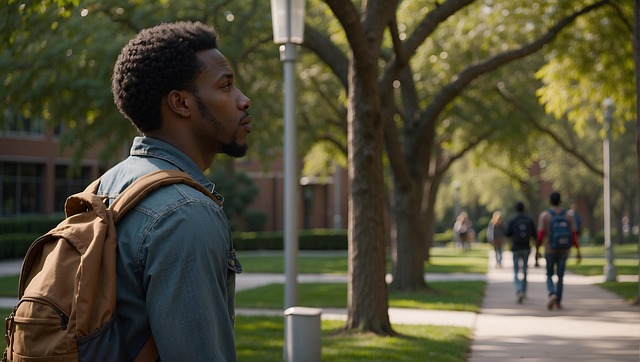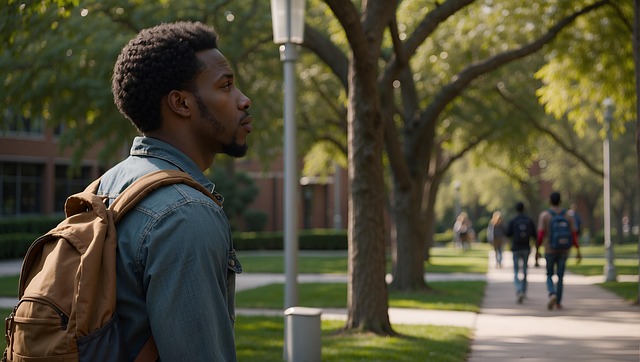Before searching for student housing, assess your needs (proximity, amenities) and set a budget. Prioritize reputable landlords with positive reviews and transparent pricing. Take your time to visit and inspect potential accommodations thoroughly. Review lease agreements carefully, understanding terms about duration, payments, and responsibilities. Familiarize yourself with local tenancy laws for fair treatment as a tenant. Build strong relationships with roommates and landlords through open communication.
“Navigating the world of student housing can be challenging, filled with potential pitfalls for the unsuspecting. To ensure a smooth transition into your new home, it’s crucial to understand your needs before searching. Researching reputable landlords and properties is paramount. Take your time to inspect housing and thoroughly read lease agreements before signing. Knowing your rights as a tenant and fostering good relationships with roommates and landlords are essential tips for student housing success.”
- Understanding Your Needs Before Searching
- Researching Reputable Landlords and Properties
- Avoid Being Hasty: Take Time to Inspect the Housing
- Understanding Lease Agreements: Read Before You Sign
- Knowing Your Rights as a Tenant
- Building Good Relationships with Roommates and Landlords
Understanding Your Needs Before Searching

Before diving into the student housing search, take a moment to understand your specific needs and preferences. Student housing tips suggest evaluating factors beyond just location—consider amenities that cater to your lifestyle, such as proximity to campus, transportation options, or even access to certain facilities like a gym or study spaces. Reflecting on these aspects will help you narrow down options and avoid later regrets.
Moreover, think about your budget and the type of housing that aligns with it. Are you looking for a shared apartment, a private studio, or something in between? Knowing your financial boundaries upfront ensures you don’t waste time exploring listings that don’t fit your means. This proactive approach to your student housing search will ultimately save you time, stress, and potential disappointments.
Researching Reputable Landlords and Properties

When searching for student housing, one of the most important aspects is researching reputable landlords and properties. Student housing tips suggest being vigilant about the sources you trust. Check online reviews and reach out to previous tenants to gauge their experiences with specific landlords or property management companies. This step is crucial in avoiding scams or poorly maintained accommodations.
Paying attention to details like license verification, insurance information, and clear lease terms can also protect you from potential pitfalls. Reputable landlords will be transparent about rent amounts, security deposits, and any additional fees. They should also provide a safe and comfortable living environment, ensuring your well-being during your time as a student.
Avoid Being Hasty: Take Time to Inspect the Housing

When searching for student housing, it’s easy to get excited and make decisions quickly, especially with deadlines looming for the new academic year. However, avoiding being hasty is one of the best student housing tips. Take a step back and allow yourself enough time to thoroughly inspect potential accommodations. Don’t just rely on photos or virtual tours; arrange physical visits to assess the property’s overall condition, safety features, and accessibility.
Check for any signs of structural issues, like water damage or pest infestations, which might not be immediately apparent. Ensure the housing meets your basic needs—is it close to campus and transportation hubs? Are there adequate study spaces and common areas? Taking time to thoroughly evaluate each option will help you make an informed decision and avoid moving into a place that doesn’t quite fit your requirements or expectations.
Understanding Lease Agreements: Read Before You Sign

When looking for student housing, understanding your lease agreement is a crucial step that can’t be overlooked. Many students rush into signing contracts without fully comprehending the terms and conditions. This can lead to unforeseen issues later on, such as unexpected rent increases or strict rules regarding subletting. Always take the time to read and understand every clause before committing.
Pay close attention to details like lease duration, payment schedules, renewal policies, and any restrictions on modifying the living space. Student housing tips suggest that you should also clarify who is responsible for utilities and maintenance. By thoroughly reading your lease agreement, you can avoid potential pitfalls and ensure a smooth living experience during your studies.
Knowing Your Rights as a Tenant

When searching for student housing, it’s crucial to understand your rights as a tenant. Knowing what legal protections are in place can help you avoid potential issues and make informed decisions. Familiarize yourself with local tenancy laws that govern student accommodation to ensure fair treatment throughout the process.
One of the key student housing tips is understanding lease agreements. Carefully read through all documents before signing, ensuring you comprehend the terms, conditions, and your rights as a tenant. This includes clarity on rent amounts, payment deadlines, maintenance responsibilities, and procedures for handling any disputes or damage claims. Knowing your rights will empower you to negotiate favorable conditions and protect yourself from unfair practices during your student housing search.
Building Good Relationships with Roommates and Landlords

Building good relationships with roommates and landlords is a crucial aspect of navigating student housing. It’s one of the best student housing tips to keep in mind, as it can significantly impact your overall living experience. Start by being approachable and open-minded; introduce yourself, share expectations, and actively listen to their perspectives. Clear communication is key to preventing misunderstandings that could lead to conflicts later on.
Regularly check in with both parties, showing respect for their time and concerns. Address any issues promptly and fairly, working together to find solutions. This collaborative approach fosters an environment of mutual understanding and support, ensuring everyone feels comfortable and valued in the shared living space. Remember, a harmonious relationship with your roommates and landlord can make your student housing experience much more enjoyable and less stressful.






